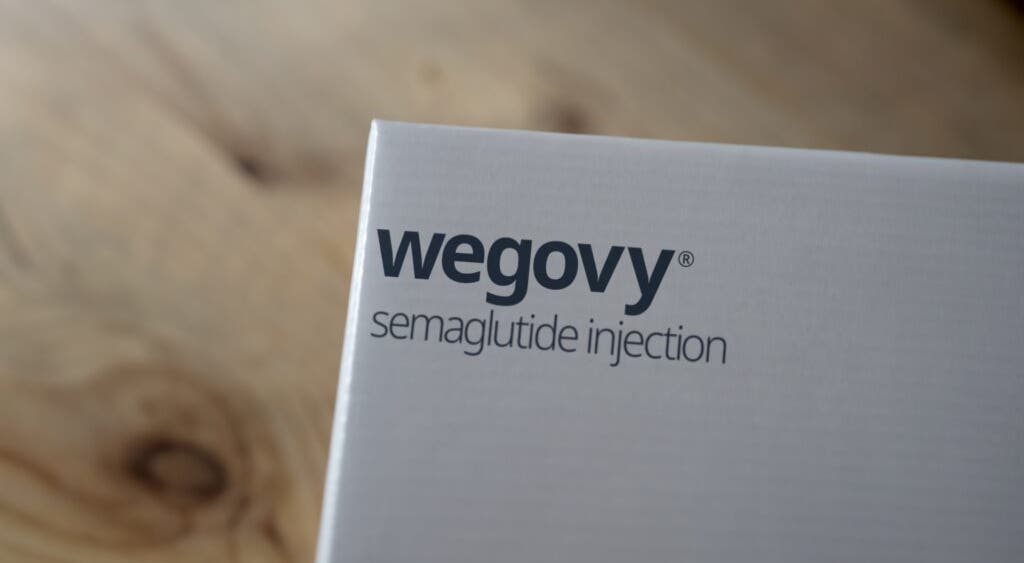Novo Nordisk's Popular Diabetes Drug Ozempic Starter Kits Face Extended Shortages in Germany, Faces Biosimilar Threat In China China, Germany, Biosimilar threat, Diabetes treatment, Novo Nordisk's Ozempic, Patent expiration (2026), Obesity medication (Wegovy), Chinese pharmaceutical company, German healthcare regulator (BfArM) by https://www.benzinga.com/

AI Insights:
Simple Explanation:
A big company called Novo Nordisk makes a medicine called Ozempic that helps people with diabetes and also helps some people lose weight. This medicine is very popular and many people want to use it, but there is not enough of it for everyone. In Germany, doctors cannot give out more Ozempic to new patients because there is not enough left. Also, in China, another company wants to make a similar medicine that can compete with Ozempic, so Novo Nordisk might have more competition soon. The company is trying its best to make sure people who really need it for their diabetes can get it, but it is still hard because many people want to use it for weight loss. Read from source...
Critical Perspective:
1. The title is misleading and sensationalized, as the shortage issue is not exclusive to Germany but affects other European countries as well. Moreover, it does not mention that Novo Nordisk has taken steps to address the supply problem by prioritizing Ozempic production over other drugs.
2. The article focuses too much on the biosimilar threat in China, which is still uncertain and not likely to happen before 2026, when the patent expires. This creates unnecessary fear and doubt among readers about Novo Nordisk's market position and future prospects.
3. The article does not provide enough context or evidence for why Ozempic has become so popular and in demand for weight loss purposes. It implies that it is solely due to its weight-reducing effects, without considering other factors such as efficacy, safety, side effects, price, availability, etc.
4. The article does not address the potential benefits of Ozempic for diabetic patients, such as improving blood sugar control, reducing cardiovascular risk, and enhancing quality of life. It only emphasizes the drug's intended use in diabetes treatment, which may be seen as a limitation or drawback by some readers who are interested in weight loss.
5. The article does not mention any alternatives or competitors to Ozempic for either diabetic patients or weight losers. It portrays Novo Nordisk as the sole provider and innovator of this class of drugs, which may not be accurate or fair. There are other GLP-1 receptor agonists and sodium-glucose cotransporter 2 (SGLT2) inhibitors available on the market that offer similar or complementary benefits to Ozempic.
6. The article does not provide any data or statistics to support its claims or assertions, such as the extent of the shortage, the impact on patients and healthcare systems, the demand and supply dynamics, the sales and revenue figures, etc. It relies mostly on anecdotal evidence, quotes from company representatives, and expert opinions, which may not be sufficient or reliable to justify its arguments.
Sentiment Analysis:
Neutral
Key points:
- Novo Nordisk's diabetes drug Ozempic faces shortages in Germany and competition from a biosimilar version in China.
- The company advises physicians to limit prescriptions for weight loss purposes and emphasizes the drug's intended use in diabetes treatment.
- Novo Nordisk has taken measures to ration Ozempic starter kits in Europe and reduce supply of another drug, Victoza, to prioritize Ozempic production.
Summary:
Novo Nordisk is facing challenges in meeting the demand for its popular diabetes drug Ozempic, which has also been used for weight loss. The company is trying to address the issue by limiting prescriptions and focusing on producing more of the drug. However, it also faces competition from a biosimilar version in China, which could affect its market share.
Investment Analysis:
We are not financial advisors. It's always essential for you to consult with a financial advisor and do your research before making any decisions about investments.
1. Novo Nordisk's Ozempic is facing extended shortages in Germany due to high demand for its weight-reducing effects and limited supply of starter kits. This may lead to increased pressure on the company to ramp up production and meet the demand, but also increases the risk of counterfeit or biosimilar products entering the market.
2. The Chinese pharmaceutical company that unveiled a biosimilar version of Ozempic poses a potential threat to Novo Nordisk's market share in China as the patent for Ozempic expires in 2026. This may result in price competition and loss of revenue for Novo Nordisk if they cannot maintain their brand reputation and quality control.
3. The off-label prescription issue of Ozempic for weight loss is a regulatory risk for Novo Nordisk, as they have been advised by the German healthcare regulator to limit prescriptions to patients already undergoing Ozempic therapy and emphasize the drug's intended use in diabetes treatment. The company may face fines or penalties if they do not comply with these regulations, which could impact their financial performance.
4. Despite the challenges faced by Novo Nordisk, they have also taken measures to address the supply situation for Ozempic and prioritize its production over other diabetes drugs. This shows that they are aware of the importance of this drug in their portfolio and are actively working to resolve the issues. However, it remains to be seen if these efforts will be enough to meet the demand and prevent the entry of biosimilar products in the market.